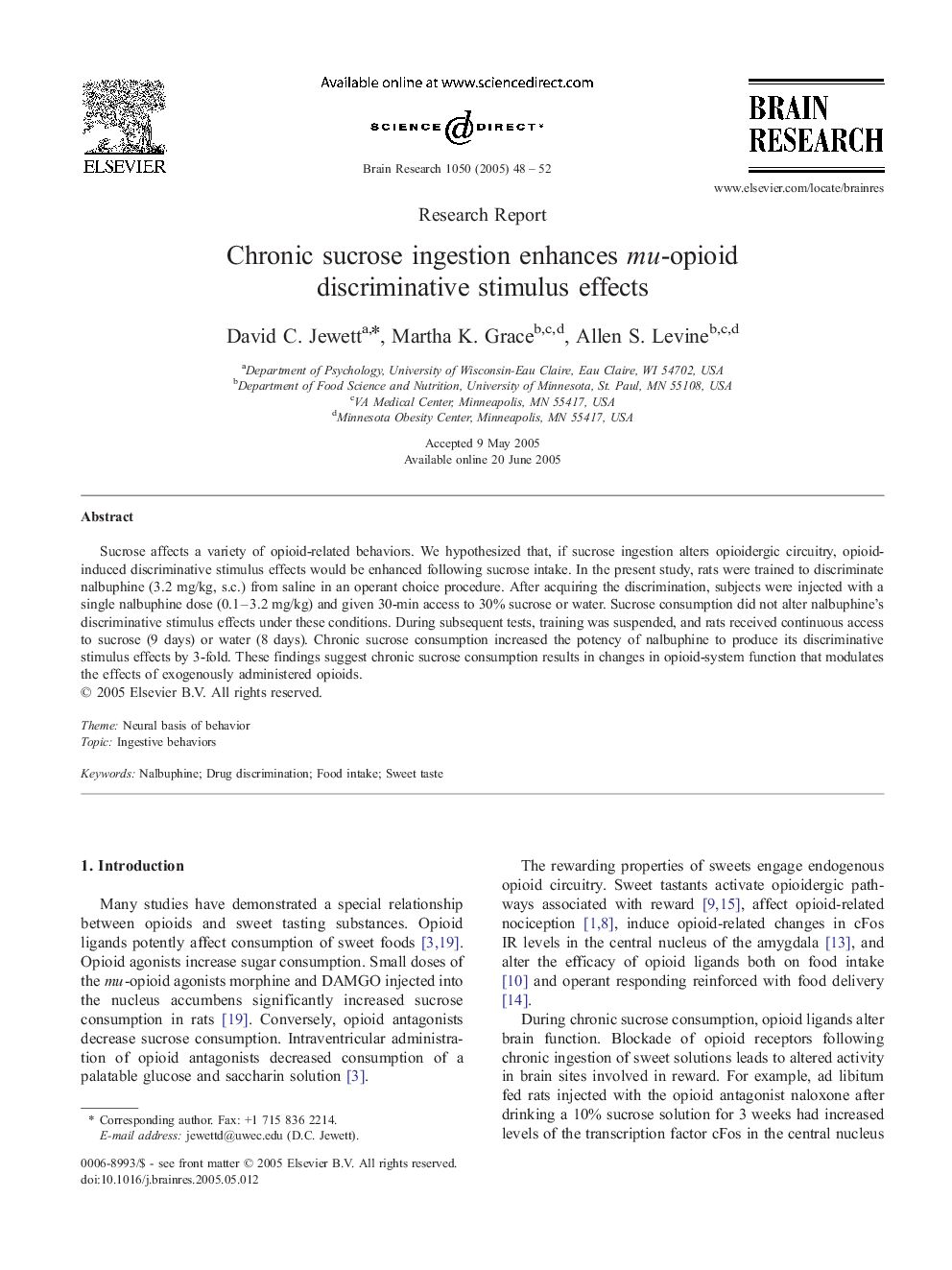| Article ID | Journal | Published Year | Pages | File Type |
|---|---|---|---|---|
| 9416125 | Brain Research | 2005 | 5 Pages |
Abstract
Sucrose affects a variety of opioid-related behaviors. We hypothesized that, if sucrose ingestion alters opioidergic circuitry, opioid-induced discriminative stimulus effects would be enhanced following sucrose intake. In the present study, rats were trained to discriminate nalbuphine (3.2 mg/kg, s.c.) from saline in an operant choice procedure. After acquiring the discrimination, subjects were injected with a single nalbuphine dose (0.1-3.2 mg/kg) and given 30-min access to 30% sucrose or water. Sucrose consumption did not alter nalbuphine's discriminative stimulus effects under these conditions. During subsequent tests, training was suspended, and rats received continuous access to sucrose (9 days) or water (8 days). Chronic sucrose consumption increased the potency of nalbuphine to produce its discriminative stimulus effects by 3-fold. These findings suggest chronic sucrose consumption results in changes in opioid-system function that modulates the effects of exogenously administered opioids.
Keywords
Related Topics
Life Sciences
Neuroscience
Neuroscience (General)
Authors
David C. Jewett, Martha K. Grace, Allen S. Levine,
